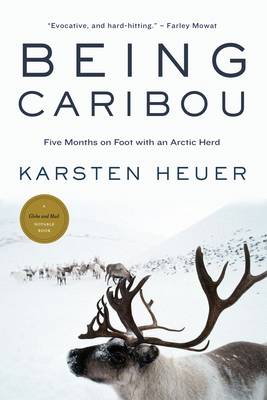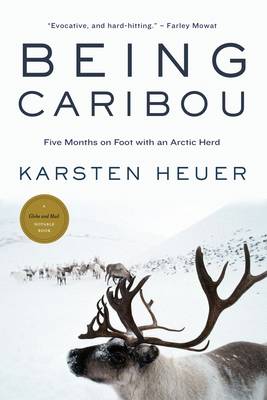
- Afhalen na 1 uur in een winkel met voorraad
- Gratis thuislevering in België vanaf € 30
- Ruim aanbod met 7 miljoen producten
- Afhalen na 1 uur in een winkel met voorraad
- Gratis thuislevering in België vanaf € 30
- Ruim aanbod met 7 miljoen producten
Zoeken
€ 29,45
+ 58 punten
Uitvoering
Omschrijving
Since time immemorial, the Porcupine caribou herd has ranged the Arctic in a 2,800-mile annual trek between its winter feeding grounds inland and its summer calving grounds on the coastal plain of the Beaufort Sea. In 2003, the caribou were joined on their spring journey, possibly for the first time ever, by two humans: wildlife biologist and writer Karsten Heuer and his wife, filmmaker Leanne Allison. Where the herd once roamed through unpopulated wilderness, it now treks from one country to another. This may well be its downfall, for under its calving grounds lies enough oil to keep the United States going for six months. Nowadays in Washington, that's considered a lot of oil, enough to justify imperilling this venerable herd. Determined to let the world know what will be lost if drilling takes place, Heuer and Allison accompanied the 123,000-strong Porcupine caribou for five months in an uncharted course over mountain ranges, through deep snow, and across semi-frozen rivers. En route, the heavily pregnant caribou and heavily laden humans alike were stalked by wolves and grizzlies newly awake from hibernation -- and ravenous. An adventure story like no other, Being Caribou reveals the drama and beauty of the migration and brings home the enormity of the loss that will surely be felt if drilling goes ahead.
Specificaties
Betrokkenen
- Auteur(s):
- Uitgeverij:
Inhoud
- Aantal bladzijden:
- 272
- Taal:
- Engels
Eigenschappen
- Productcode (EAN):
- 9780771041235
- Verschijningsdatum:
- 7/08/2007
- Uitvoering:
- Paperback
- Formaat:
- Trade paperback (VS)
- Afmetingen:
- 152 mm x 226 mm
- Gewicht:
- 294 g

Alleen bij Standaard Boekhandel
+ 58 punten op je klantenkaart van Standaard Boekhandel
Beoordelingen
We publiceren alleen reviews die voldoen aan de voorwaarden voor reviews. Bekijk onze voorwaarden voor reviews.











